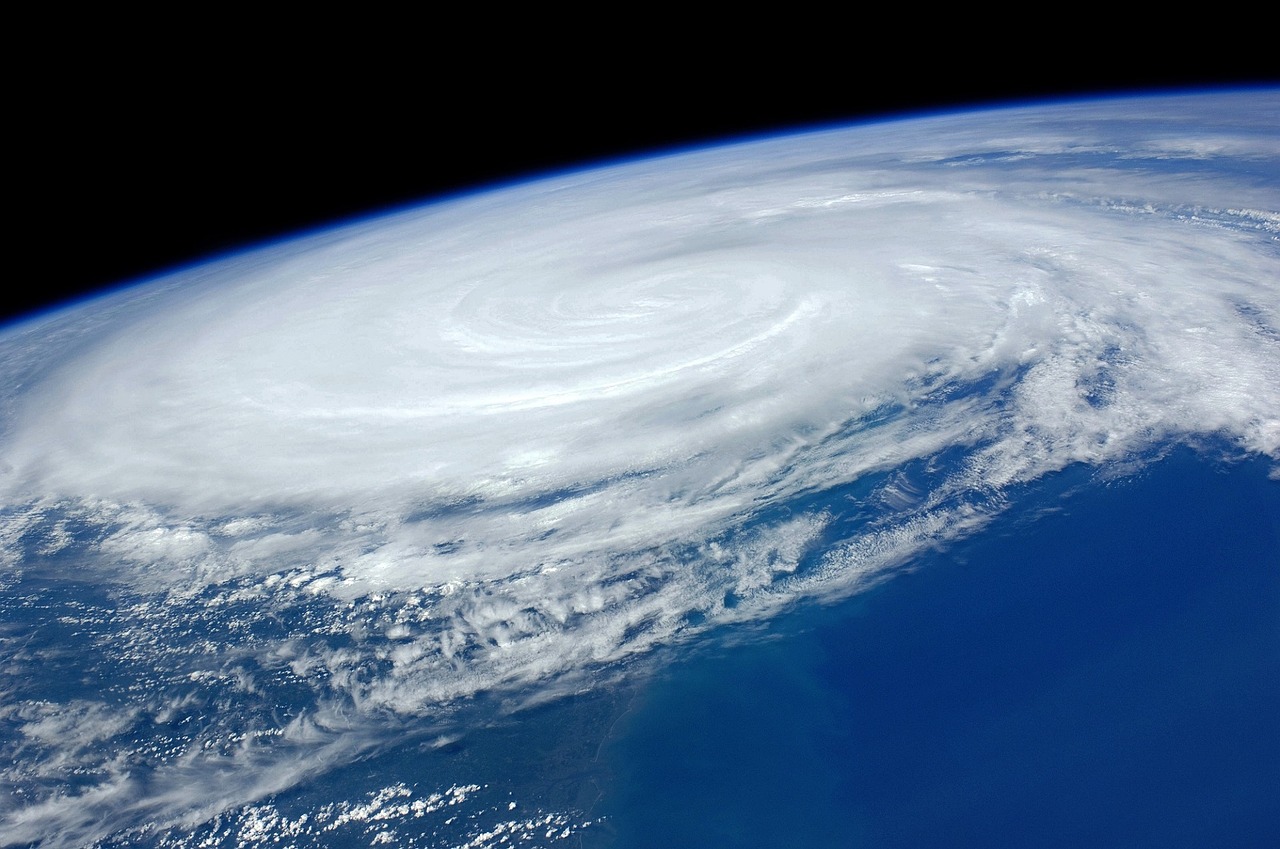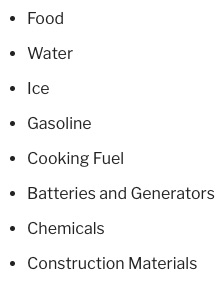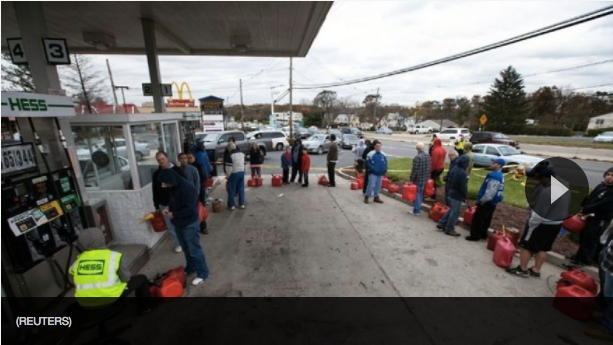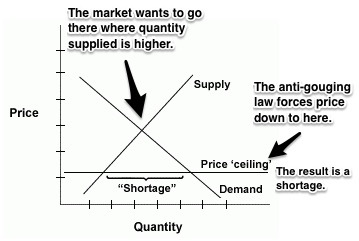Last year, when Hurricane Irma approached Florida, Delta’s fare from Miami to Phoenix jumped from $547.50 to $3,258.50. Somewhat similarly, several days ago as Lane came close to Hawaii, the airline denied charges that fares climbed to $10,000 for tickets on planes leaving the area.
Meanwhile in Hawaii, some stores were reputedly elevating prices as shoppers “cleared the shelves.”
Unethical? Not necessarily.
“Price Gouging” Laws
Businesses in Hawaii found guilty of “price gouging” can be fined from $500 to $10,000 for each violation. This is a partial list of the items covered by Hawaiian law:
Other States
Elsewhere, penalties for “price gouging” vary. It could be a fine or jail or restitution or all three. Among the 34 states that try to prohibit the practice, Texas has a cap of $20,000 for “excessive” prices. But you get walloped with as much as $250,000 if your victim is over 65 years old.
When Hurricane Sandy hit New Jersey, my local gas station resembled the following image for just a short while. Then they ran out and closed. I suspect that if the N.J. “price gouging” law had not prevented them from raising prices more than 10%, we would have had more gas:
From: Fox News
Since I really do not like the term, I placed quotation marks around “price gouging.” My reason? Because it has a negative connotation, I would rather call it Full Shelf Prices (or something more clever).
Our Bottom Line: Incentive
If you disagree with me, you are in good company. Nobel economics laureate Daniel Kahneman said that businesses need to be known as fair in “Fairness as a Constraint on Profit.” Referring to economists who favor “gouging,” one of his co-authors, Richard Thaler recently added, “They are misunderstanding that if you piss people off, you pay a price…”
However, anti-gouging laws prevent some good things from happening on the supply and demand sides of markets. On the supply side, higher prices are an incentive that encourage producers to sell more gas. They work a little harder to find extra, they extend their hours, and they buy generators in areas that lost power. Meanwhile, higher prices nudge consumers to buy less. As a result, those of us at the back of the line have a chance of getting gas.
It can be win-win. Price increases during an emergency encourage the supply side to provide more and the demand side to conserve.
By contrast, the price ceiling that a price gouging law establishes creates a shortage:
And that is why the shelves in Hawaiian supermarkets were empty.
My sources and more: Thanks to Mark Perry’s AEI blog for alerting me to Hawaii’s price gouging law. From there I discovered the Delta allegations and the list of state gouging laws. And finally, here is the Kahneman fairness paper.
Please note that parts of this post were previously published at econlife.










“those of us at the back of the line have a chance of getting gas”. Yeah, as long as you’ve got money in your pockets. The whole point of anti-gouging laws is to make emergency supplies first-come-first-serve. It’s not ideal, but neither is denying emergency supplies to the needy because they can’t afford ridiculous prices. Tolerance to price gouging actually ENCOURAGES hoarding. People hoard emergency supplies just to resell them at ludicrous prices. To be fair, I don’t have any economy-related credentials on my resume. But, based on my personal experience during this shortage of emergency supplies, price-gouging takes advantage of desperate consumers and is morally wrong.